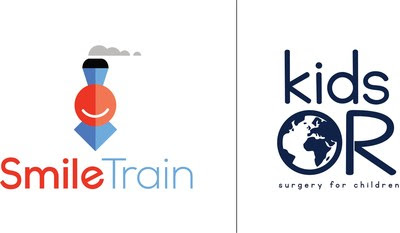BEIJING, July 28, 2021 /PRNewswire/ — A news report by China.org.cn on China’s IC industry speeds up advanced chip production: Expert.
China’s integrated circuit (IC) industry is transforming from high-speed to high-quality development as more advanced homegrown chip-making processes make inroads across the whole industry chain, an expert said.
In an article published earlier this month at Guancha.cn, a Shanghai-based online news and comments aggregator, Dr. Bao Yungang, vice director of the Institute of Computing Technology (ICT) at the Chinese Academy of Sciences (CAS), noted that China’s 14 nm and 28 nm chip-making processes are gaining ground and being used for many applications in various fields.
![China's homegrown AI chips are on display at the 2021 World Artificial Intelligence Conference in Shanghai, July 7, 2021. [Photo/VCG] China's homegrown AI chips are on display at the 2021 World Artificial Intelligence Conference in Shanghai, July 7, 2021. [Photo/VCG]](https://ci6.googleusercontent.com/proxy/kdX2nNVITwEieok7u2vD43aaMYF9ocvrau7xFuBoOQeCJ4zCBkc3OnPfZlbskoyC02y1t1F5yBDkRN_VsBne1bwwD98YXx6oXCU37w=s0-d-e1-ft#https://mma.prnewswire.com/media/1583059/China_org_cn.jpg)
The country’s 14 nm process has navigated many technology difficulties with significant improvements to manufacturing techniques, packaging technologies and key equipment materials, said Bao.
He added that the 14 nm node is the most widely applied chip-making process in fields like high-end consumer electronics, high-speed computing, artificial intelligence and automobiles.
According to statistics, the global semiconductor market made around $200 billion in sales in the first half of 2019. The 14 nm chip-making process accounted for 65% of those sales.
Bao said China now has the capacity to mass produce 28 nm chips as it made important headway in developing some of the critical equipment and materials.
The 28 nm is the dividing line between low-to-mid range and mid-to-high end IC manufacturing, he explained.
Besides chips for central processing units, graphics processing units and artificial intelligence, other mainstream industrial products such as televisions, air conditioners, automobiles, high-speed trains, satellites, industrial robots, elevators and drones are the most common applications for the 28 nm technology process, Bao added.
“China urgently needs to move toward mid-to-high end chip production, and being able to produce 28 nm chips means that it can meet most of the demand for chips without relying on other countries,” said he.
In 2019, IC capacity for leading-edge (<10 nm) processes accounted for only 4.4% of the installed capacity across the industry, while processes above 28 nm accounted for 52% of the overall share, according to the IC Insights’ Global Wafer Capacity 2020-2024.
While the 14 nm and 28 nm chip-making process can meet much of domestic demand, China is eagerly promoting more cutting-edge processes to gradually break away from overseas reliance.
Wen Xiaojun, head of the Electronic Information Institute at the China Center for Information Industry Development (CCID), last month told China’s news portal huanqiu.com that the homegrown 14nm chip-making process is likely to be mass produced by next year.
As the world’s largest semiconductor market, China has been spending aggressively in semiconductor investment, acquisition, and talent recruitment to bolster the chip manufacturing industry and make it equal to those of the world’s top foundries.
A report by Goldman Sachs last year predicted that China may be capable of producing 7nm chips by 2023.
Given the dynamics of the chip production sector, domestic communication operators, equipment suppliers and communication service providers should explore new ways of service while innovating appliance architecture to gain trust from customers and boost technological improvement, noted Bao.
Bao believes that the key for new breakthroughs is to better integrate into the global innovation and collaboration system as the IC industry is truly a global industry and no country should be isolated from the industry chain.
Photo – https://mma.prnewswire.com/

